Rich Kids Don't Go To Jail
Lynda Chanwai-Earle goes behind the scenes with the creative team of Camp Be Better, learning how the concept of ‘entitlement to enlightenment’ drives their new series.
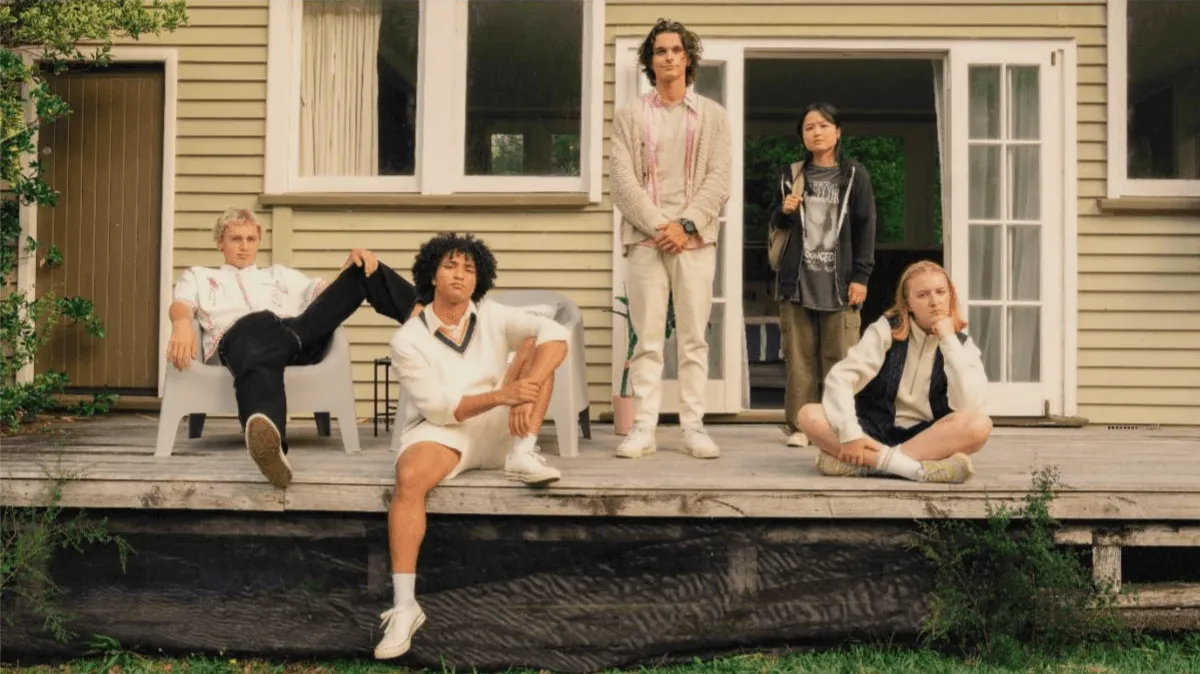
Growing up poor was harsh reality for Hayden J. Weal.
“I had to help my single mum put groceries back on the shelves when her card declined. I also had friends living in mansions. I had friends addicted to drugs, and friends suffocating under familial pressure.
“I was arrested and charged with multiple things when I was a teenager, and I was appointed legal aid by the state because we couldn’t afford a lawyer. It ended it up being a very bad outcome for me. It was a nonviolent crime, but the way we were treated – as if we were fast food – you really don’t feel like a person.”
For Weal, it was a form of internal character defamation. “You start to believe horrible things about yourself because that’s what you’ve been told. After my experience, I felt like a criminal to a bunch of people. It’s like telling a kid that they’re not smart.
“The only difference between people seen as a ‘social benefit’ and people seen as a ‘social negative’ is that people working well in society have just been told that they can.”
Weal was shocked by the inequity of the justice system at the time - especially after watching wealthy kids just walk away.
“I’d just turned 18, so unfortunately, I was charged as an adult. The way that we were treated compared to the people that were able to afford proper representation was astonishing.
"That’s always sat very angrily at the back of my head."
It begs the question about a minority of young offenders we rarely hear about – the children of Aotearoa’s wealthiest.
Do rich kids ever go to jail?
It's also proven an inspiration for Weal, relishing his new role as Co-Director/Writer of Camp Be Better, which is currently streaming on TVNZ+.
As explained in the show description, "Welcome to Camp Be Better, a safe haven for rich kids who have broken the law. To the outside punishment is served but really, it’s 100 days of rest and relaxation. Enter 17-year-old Niah Zhou (played by Louise Jiang) – and obvious outsider whose crime includes shitting on a bench and stealing from her mum’s former employer.”
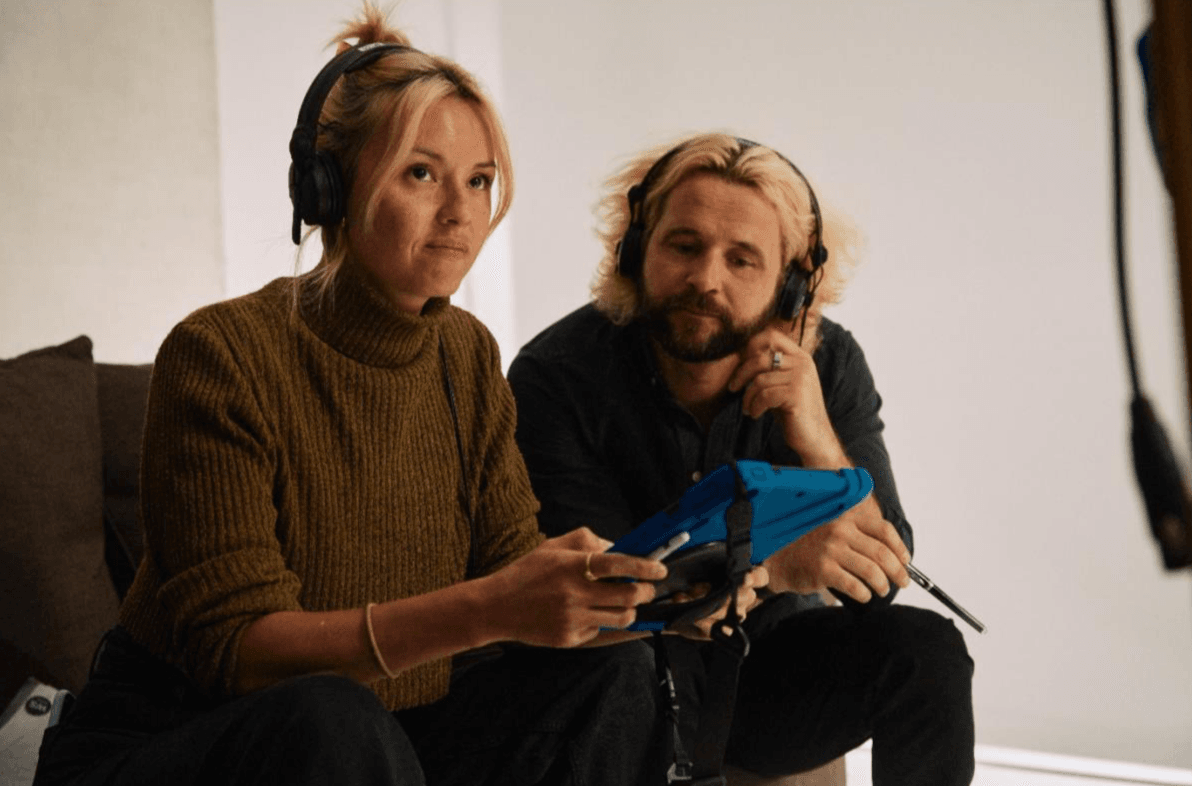
Weal's experiences on being on the wrong side of the great financial divide are echoed by other key members of the show's talented creative team.
Producer Joyce Wong came from humble beginnings. Her parents ran a $2 Shop in Auckland. When it became lucrative, she experienced wealth as an awkward teen, feeling out of depth in all sorts of weird social situations.
For Weal's fellow Co-Director/Writer Chye-Ling Huang it was complex envy. “I was a teenager who was scared of everything, especially the cool rich kids. I hated them, I loved them, I wanted to be them.”
Timely satire
It's certainly a timely kōrero to be exposing.
Ten male teenage offenders are currently taking part in the Government’s boot camp pilot under a 12-month trial that started in July this year - part of New Zealand’s coalition Government plans to create controversial military style boot camps for “the most persistent young offenders.”
'Young Offender Military Academies' was part of the coalition Government’s 100-day plan, spearheaded by the Childrens Minister Karen Chhour. It came hot on the heels of the release of the report into abuse in state care, detailing how Great Barrier Island’s boot camp involved children being subjected to physical and sexual abuse, children who were forced to dig trenches they thought were their own graves.
It’s likely this latest youth boot camp in Palmerston North is no picnic for these young offenders – disproportionately Māori and from marginalised, low socio-economic demographics whose families can’t afford to challenge the justice system.
Huang declares “[Our show’s a critique] about the system really. The context of which everything’s built on - this classist, colonialist, white supremacist system, which we operate under.”
The irony of the timing of their series is not lost on Wong as Producer.
“We’d listen to radio interviews – they were launching boot camps in New Zealand, like trialling them. I remember one of the ministers calling [offenders] 'Promising young people.' So that’s why that line is in there too – a reflection of how, in a warped way, they see these young people and why they’re creating these camps.
“That’s why we’ve focussed on the friendship between the group - we believe that our rangitahi need connection. The reason that they’re disconnecting from their family or friends is most likely because of the circumstances that they’re in.
"They need to be connected to their friends, family, and culture to break the cycle.”
Production process
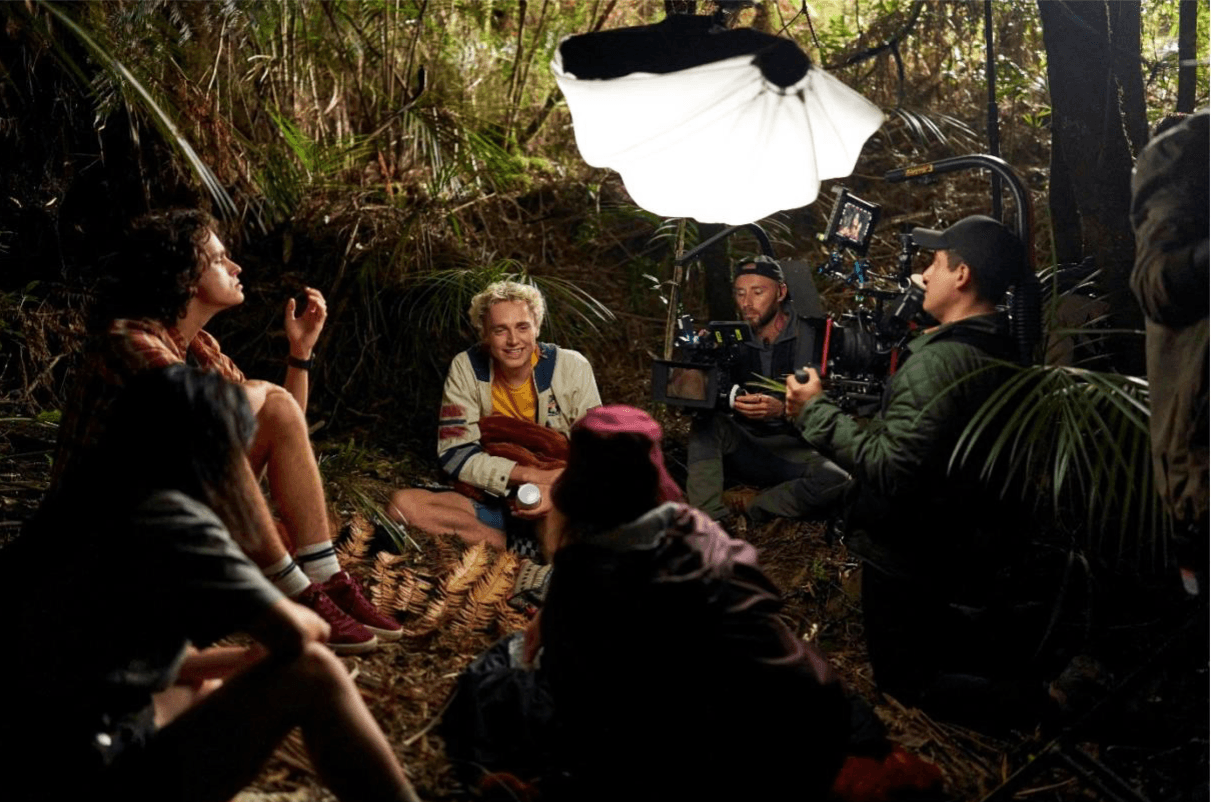
The first season’s six episodes focusses on Niah (soon to be outed as a 'crazy, poor Asian) landing in Camp Be Better and sharing a glamping cabin with four rich ‘nepo-babies,’ as they all learn not to judge each other by their haute couture, or lack thereof.
“They haven’t fully reformed from being kids of the 1% who are super entitled, you know, who take everything for granted to suddenly become social justice warriors,” detailss Huang, “It’s first steps for them as well – becoming friends with someone who’s not from their world.”
Weal muses, “The whole thing is about connections and growing deep friendships – to make something greater than the sum of its parts.”
Huang explains, “We did over 300 auditions because we knew that the age range we were going for, we might need to cast people we haven’t seen yet.
“Plus, Hayden and I also wanted to cast people for their improv abilities because it was gonna be such a fast-paced, comedic shoot. A big equal opportunity vibe.
“We wanted really warm-hearted people, people who were massive team players from day one. For Joel (Washington) who plays Jonas, and Rachel (Brebner) who plays Wendy, that’s their first screen gig ever.”
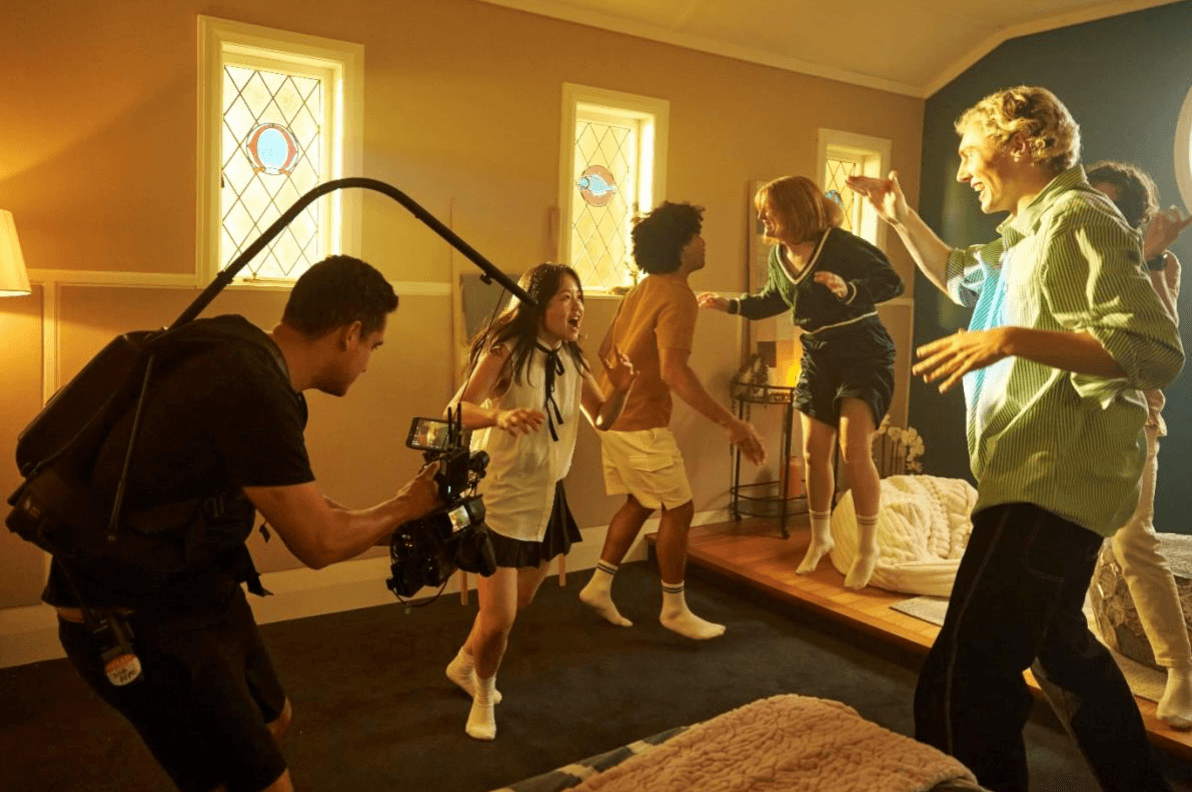
All six episodes of the first season were filmed in a terrifyingly tight turnaround of 6-weeks at the Bella Rakha Retreat Centre in Oratia, at the base of the Waitakere Ranges.
Huang reflects on producing their show on the smell of an oily rag, roundly praising Wong for wrangling their tight budget of around $700K to last the gruelling mile.
“We’re privileged to have had these people behind us every step of the way, from the cast and crew. We made it a metaphor for the content and context of the show itself because we’re the scrappy underdogs, budget-wise of TV land.”
“We’re very lucky that all three of us have been working in the film community with some great collaborators who are willing to just give us their time,” adds Wong, “we’re super thankful to the cast and crew who did this on a very, um, discounted rate.”
“None of our scenes are over a minute – fast wardrobe changes – Oh my God! Sometimes five, six times a day,” recalls Weal. “It was absolutely chaotic, and I could have done it for the rest of my life. It was the most fun and stimulating, challenging thing every day,”
“Organised chaos!” grins Wong, “ And we were lucky the base was close by – we weren’t swapping locations.”
Wong reckons having a large, enthusiastic young cast generously support each other on set helped to overcome any inexperience.
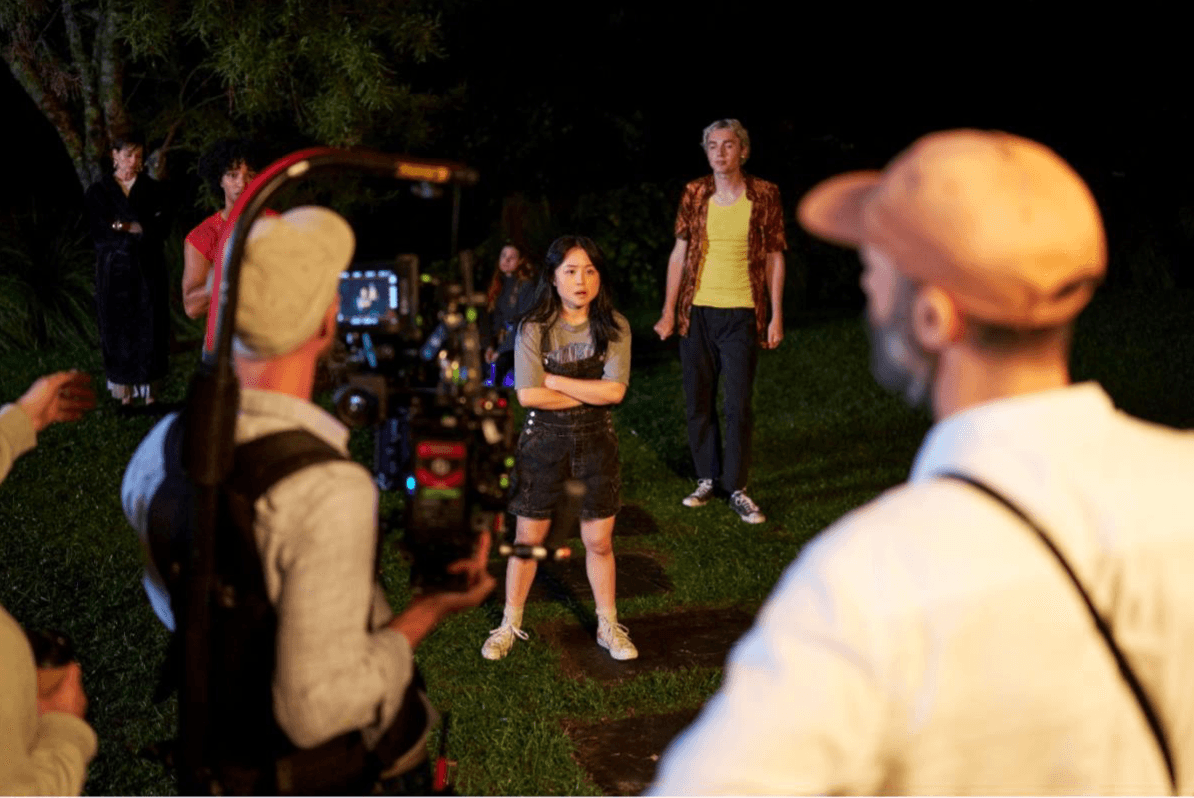
“I’m very passionate about young people, helping them grow into their best selves. Sometimes we would have 20, 30 young people, some of them who have never stepped on a set before, having them all bond together – wow this is what film can do.”
Back to that sticky question about Aotearoa’s wealthy. Do rich kids (or their parents) ever go to jail? Could they benefit from walking a mile in the boots of others less fortunate, as they learn to shed entitlement and embrace enlightenment… ?
Perhaps this is what Chhour and Minister David Seymour were pondering in Palmerston North, as they posed together with those not quite haute couture military boots at the launch of their brand-spanking-new ‘Young Offender Military Academy.'